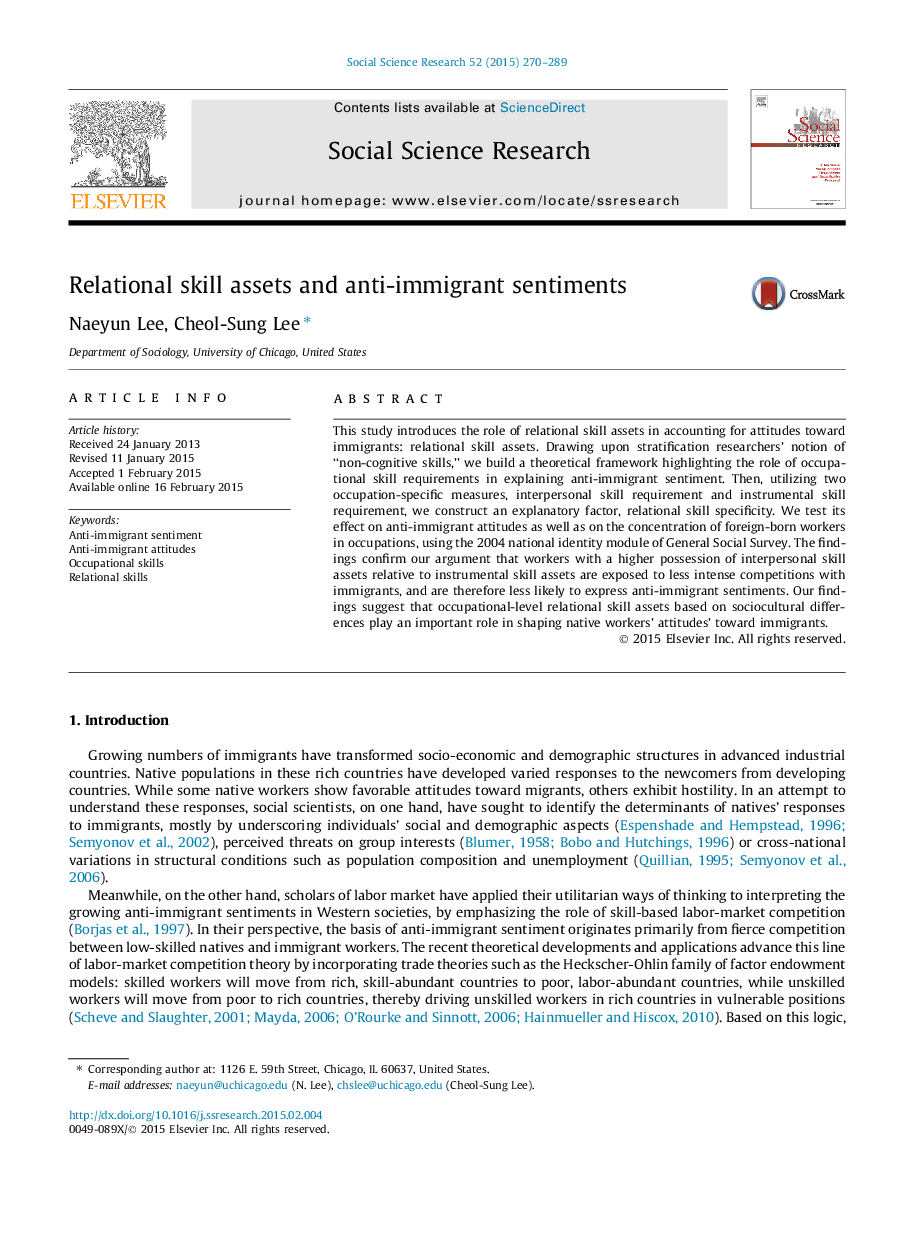| Article ID | Journal | Published Year | Pages | File Type |
|---|---|---|---|---|
| 955700 | Social Science Research | 2015 | 20 Pages |
•This study explores the effect of occupational skills on anti-immigrant sentiment.•Workers with strong interpersonal skills show less anti-immigrant sentiments.•Workers with strong instrumental skills show more anti-immigrant sentiments.•Occupations with high relational skill specificity have fewer foreign-born workers.•Workers with high relational skill specificity show less anti-immigrant sentiments.
This study introduces the role of relational skill assets in accounting for attitudes toward immigrants: relational skill assets. Drawing upon stratification researchers’ notion of “non-cognitive skills,” we build a theoretical framework highlighting the role of occupational skill requirements in explaining anti-immigrant sentiment. Then, utilizing two occupation-specific measures, interpersonal skill requirement and instrumental skill requirement, we construct an explanatory factor, relational skill specificity. We test its effect on anti-immigrant attitudes as well as on the concentration of foreign-born workers in occupations, using the 2004 national identity module of General Social Survey. The findings confirm our argument that workers with a higher possession of interpersonal skill assets relative to instrumental skill assets are exposed to less intense competitions with immigrants, and are therefore less likely to express anti-immigrant sentiments. Our findings suggest that occupational-level relational skill assets based on sociocultural differences play an important role in shaping native workers’ attitudes’ toward immigrants.
